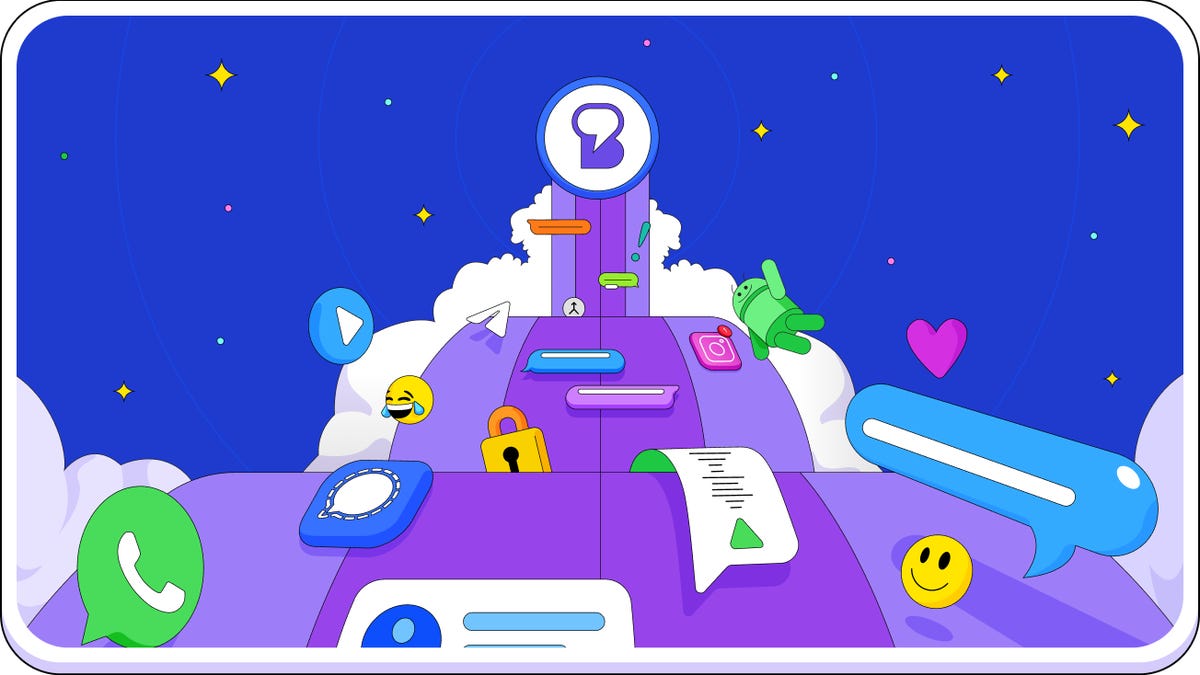Beeper — having given up on its iMessage for Android ambition — is instead moving forward with a new Android chat app publicly released on Tuesday. The company also announced that it’s being acquired by WordPress creator and current Tumblr owner Automattic.
Beeper’s new Android app, previously available in a beta, has a similar function as the company provided last year with its iMessage integration: a text messaging hub app that lets you text contacts on services like WhatsApp, Messenger, Signal and other services from within the Beeper app. While Apple successfully shut down Beeper’s method of entering its iMessage network, the new Beeper connects with 14 other chat networks and can be accessed from mobile and desktop. That includes an integration with Google Messages for RCS texting, which Apple is set to support at some point this year.
Beeper is available in both Android and iOS apps, though not even the latter supports iMessage, with CEO Eric Migicovsky telling CNET over email that the iOS version will eventually get its own update to be more like the new Android version.
By joining Automattic, Beeper is also now under the same ownership as services like WordPress, Pocket Casts and Tumblr. While these blogging platforms aren’t expected to get any integration with the Beeper app, Migicovsky said in a blog post announcing the acquisition that it will merge with the similar Texts.com messaging app that Automattic acquired last year. This combined team will continue to operate independently under its new ownership.
Migicovsky said that the acquisition has no immediate changes planned for either Beeper or Texts.com, the latter which he now also oversees as Automattic’s new Head of Messaging. He did say that while Beeper is currently available for free, the company still plans to provide a premium tier of service in the future.
While Beeper continues to be an open source project, it is still important to note that Beeper does not officially collaborate with any of the chat networks that it interconnects to. This means that while Beeper is pledging to support many of the features that a particular service provides for communication, it won’t necessarily be at parity as using a service directly. Beeper also pledges that its setup does not allow it to see any messages sent or received, but several of the services it supports do require users to trust Beeper with access tokens and keys to their accounts.
In short, while Beeper has been in operation for three years, there is still a degree of privacy risk to be aware of if you want to give it a try. But with so many chat apps and messaging services out there, efforts to attempt to streamline all the noise could have a lot of interest as they develop.
